Body image refers to how a person perceives their physical appearance. It can be influenced by various factors, such as societal standards, personal experiences, and media portrayals of beauty. Many individuals experience body image issues at some point in their lives. These concerns can range from mild dissatisfaction to more severe struggles that affect mental health and overall well-being. It's important to understand that body
Understanding the Impact of Body Image on Mental Health
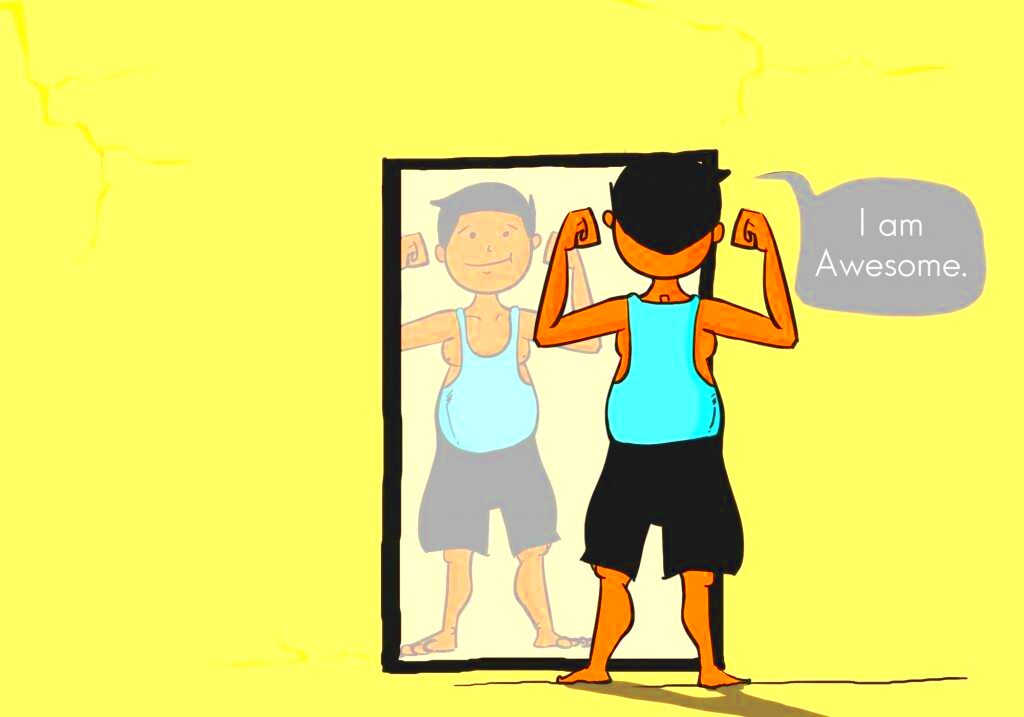
Body image plays a significant role in a person’s mental health. When someone feels unhappy with their appearance, it can lead to negative thoughts, low self-esteem, and emotional distress. In some cases, these feelings can develop into serious conditions such as anxiety, depression, or eating disorders. The constant pressure to meet unrealistic standards of beauty can be overwhelming, especially when people feel isolated or judged because of their appearance.
It's essential to recognize that poor body image isn't just about vanity—it's deeply connected to how individuals view themselves and their worth. Here's how body image issues can impact mental health:
- Low Self-Esteem: Feeling dissatisfied with one's body can lead to a lack of confidence, making it hard to take on new challenges.
- Social Withdrawal: People may avoid social situations or isolate themselves to avoid feeling judged about their appearance.
- Depression and Anxiety: Persistent dissatisfaction with body image can lead to sadness, worry, and even panic attacks.
- Disordered Eating: An unhealthy focus on weight or shape may lead to eating disorders, such as anorexia or bulimia.
Signs Someone May Be Struggling with Body Image
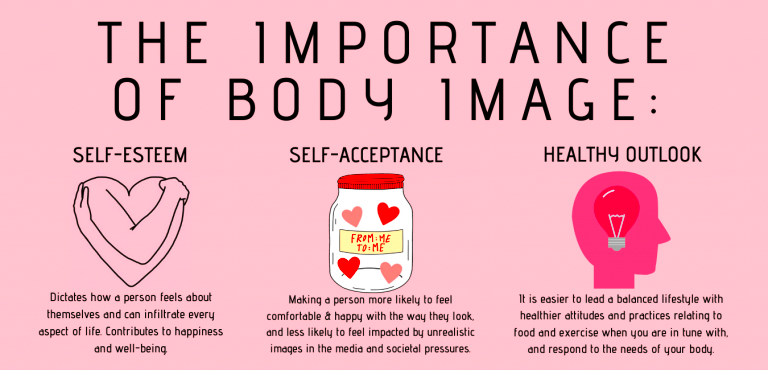
Recognizing when someone is struggling with body image issues can be challenging, as it often affects individuals in private or behind closed doors. However, there are some common signs that may indicate someone is facing these difficulties. It's important to approach these situations with care and offer support when needed.
Here are some signs that someone may be struggling with body image issues:
- Frequent Complaints About Appearance: If someone constantly talks about their body in a negative way or expresses dissatisfaction with how they look, it could be a red flag.
- Excessive Focus on Weight: A preoccupation with losing weight, checking weight regularly, or comparing body size to others may suggest body image issues.
- Avoiding Social Situations: Individuals with body image issues may skip events or avoid being in photos to prevent others from seeing them.
- Changes in Eating Habits: Sudden changes in diet, excessive dieting, or overeating in secret are often linked to concerns about body image.
- Emotional Distress: Individuals may express frustration, sadness, or anger about their appearance, which can signal deeper emotional struggles.
- Physical Symptoms: Sometimes, body image issues lead to physical health concerns such as extreme weight loss, fatigue, or other symptoms of eating disorders.
If you notice these signs in a loved one, it's important to offer support and encourage them to seek help from a professional if necessary.
How to Offer Support without Judgment
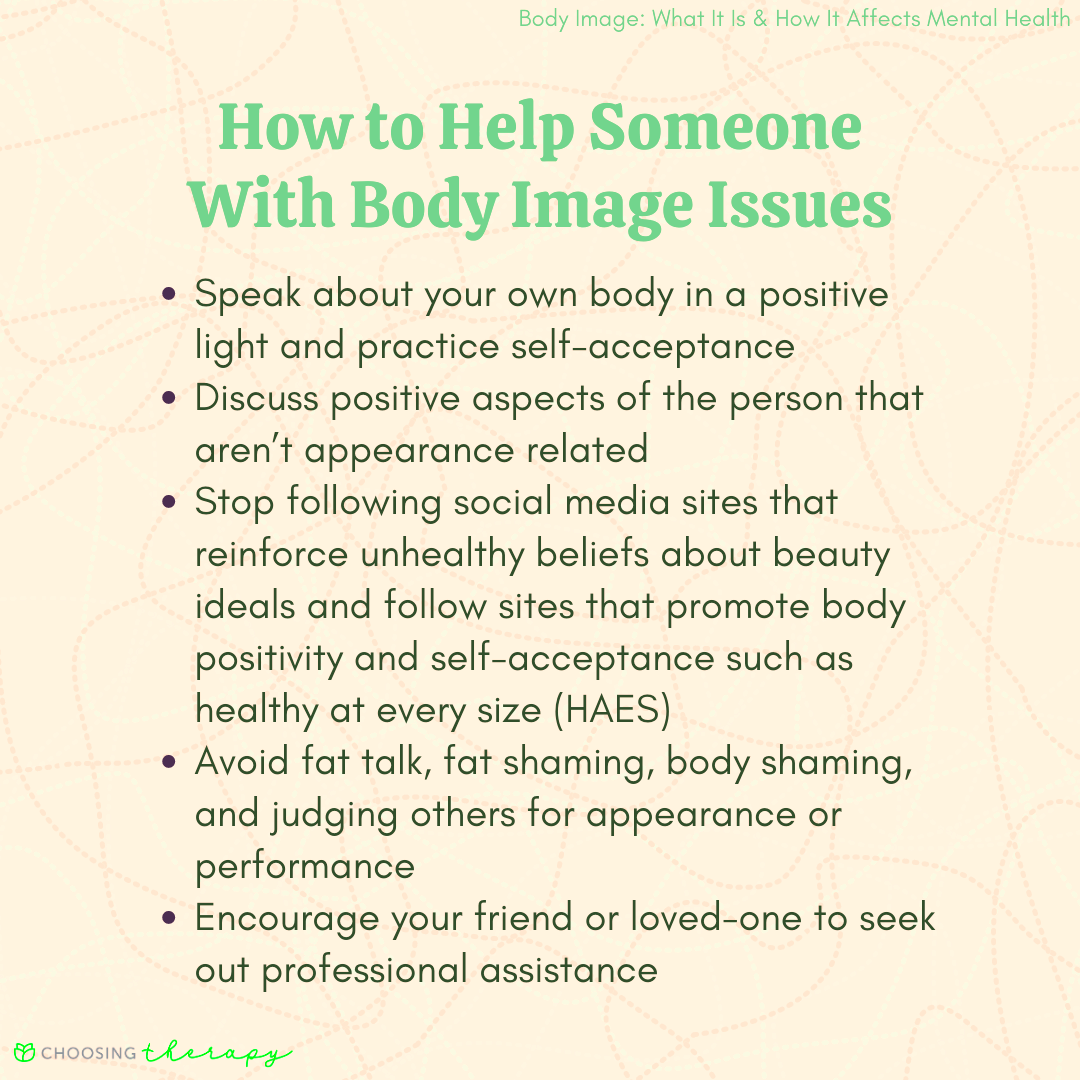
When someone opens up about their body image struggles, offering support without judgment is crucial. Many people feel ashamed or embarrassed about their feelings, so it's important to create a safe, non-judgmental space where they can express themselves freely. The goal is to show understanding, not to offer quick fixes or tell them how to feel. Sometimes, just being there and listening can make all the difference.
Here are a few key ways you can offer support without judgment:
- Listen Actively: Pay attention to what the person is saying without interrupting. Let them express their thoughts and feelings fully before offering advice or solutions.
- Validate Their Feelings: Acknowledge that their feelings are real and valid. Even if you don’t fully understand, don’t dismiss their emotions. You can say things like, “I can see this is really hard for you” or “I understand why you feel that way.”
- Refrain from Offering Solutions Immediately: Avoid offering advice unless asked. Sometimes, people just need to be heard rather than given advice. If they want suggestions, they'll ask for them.
- Avoid Making Judgments or Criticism: Refrain from making negative comments about their appearance or even your own. Comments like “You look fine” or “It’s all in your head” can feel dismissive.
- Respect Their Boundaries: If they’re not ready to talk, don’t push them. Let them know you’re there when they’re ready, but give them the space they need.
Supporting someone with body image issues is about showing empathy, patience, and understanding. Avoiding judgment helps them feel safe enough to seek the help and healing they may need.
Encouraging Positive Self-Image and Confidence
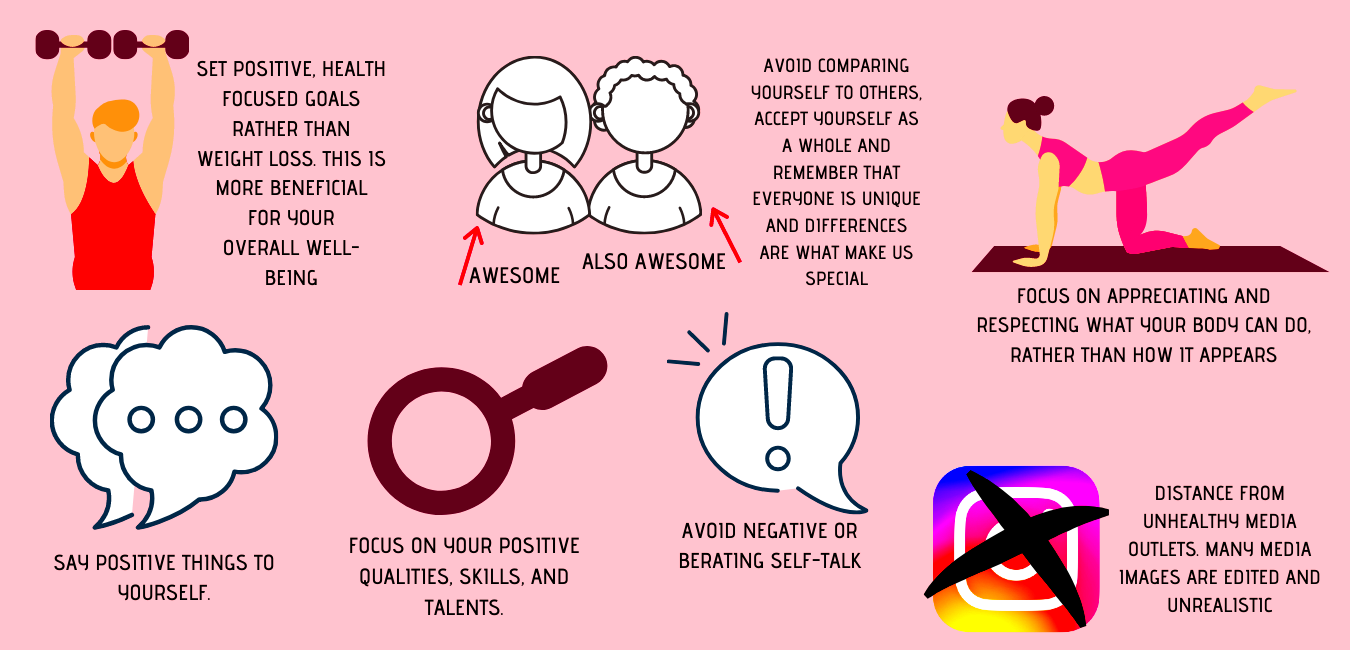
Encouraging a positive self-image can be a transformative experience for someone struggling with body image. It's essential to help them see their worth beyond appearance and to focus on the strengths and qualities that make them unique. Building confidence takes time, but small positive affirmations and actions can make a big difference.
Here are some ways to encourage positive self-image and boost confidence:
- Focus on Internal Qualities: Remind the person of their inner strengths, like kindness, intelligence, creativity, or resilience. Compliment their qualities that aren’t related to their appearance.
- Encourage Self-Care: Promote healthy habits like exercise, eating nutritious foods, getting enough sleep, and taking time for relaxation. Help them understand that self-care is about feeling good, not just looking good.
- Be Mindful of Language: Watch how you talk about yourself and others. Use positive, inclusive language that encourages a healthy relationship with the body. Avoid self-criticism or making negative comments about appearance.
- Set Realistic Expectations: Help them understand that no one is perfect, and media portrayals often feature unrealistic standards. Encourage them to embrace their body for what it is, instead of striving for an unattainable ideal.
- Celebrate Small Wins: Celebrate the little victories. If they try something new, whether it’s wearing a certain outfit or speaking up about how they feel, recognize and applaud these actions.
Helping someone build a positive self-image isn’t about fixing them—it’s about empowering them to see their beauty and value in a way that’s not tied to their physical appearance. Consistency and patience are key in this process.
Effective Communication Tips for Talking about Body Image
Talking about body image can be tricky, especially if the person is feeling vulnerable or sensitive about the topic. To have a productive and supportive conversation, it's important to approach the discussion with care, empathy, and sensitivity. The right words can make a big difference in how the person feels heard and supported.
Here are some effective communication tips when discussing body image issues:
- Use "I" Statements: Instead of saying, "You shouldn’t feel this way," try, "I can see this is really difficult for you, and I want to support you." This helps avoid making the person feel blamed or misunderstood.
- Be Empathetic: Put yourself in their shoes. Show that you understand the emotional pain they may be going through. Phrases like "That must be tough" or "I can’t imagine how hard this is" convey empathy and understanding.
- Don’t Minimize Their Struggles: Avoid saying things like “You look fine” or “It’s not a big deal.” These comments can make the person feel invalidated. Instead, acknowledge the depth of their feelings and offer support.
- Keep the Conversation Open-Ended: Rather than pushing them to talk, give them room to open up on their own terms. Ask questions like, “How are you feeling about your body lately?” and let them share their thoughts at their own pace.
- Be Mindful of Your Body Language: Non-verbal cues are just as important as what you say. Make sure your body language is open and supportive—avoid crossing your arms, looking away, or seeming impatient. Maintain eye contact and show you’re engaged in the conversation.
- Offer Reassurance, Not Solutions: Sometimes the best way to help is to reassure the person that they are not alone. Instead of jumping straight into solutions, let them know that it's okay to feel what they’re feeling, and they don’t have to go through it alone.
Effective communication can help build trust and understanding, which is essential when supporting someone with body image issues. By listening, offering empathy, and using positive language, you can help guide the conversation in a way that’s healing and constructive.
Resources and Professional Help for Body Image Issues
When body image issues start to interfere with daily life, it may be time to seek professional help. Fortunately, there are many resources available to support individuals who are struggling. These resources range from online tools to in-person counseling, and they can make a significant difference in someone’s journey toward healing.
Here are some resources and types of professional help available:
- Counseling and Therapy: Speaking to a therapist, especially one who specializes in body image, self-esteem, or eating disorders, can provide the necessary tools to cope with negative feelings about one's body. Cognitive Behavioral Therapy (CBT) is a common and effective treatment for body image concerns.
- Support Groups: Sometimes, sharing experiences with others who understand can be incredibly healing. Many support groups, both in-person and online, are available for those struggling with body image issues. These groups offer a sense of community and can help reduce feelings of isolation.
- Online Resources and Hotlines: Websites like National Eating Disorders Association (NEDA) and other mental health organizations provide helpful guides, articles, and hotlines. These can be great starting points for someone looking for help.
- Medical Help: If the body image issue is leading to disordered eating, a medical professional, such as a doctor or dietitian, may be needed to address any physical health concerns. They can provide guidance on developing a healthy relationship with food and body.
- Books and Self-Help Resources: Many books and self-help guides are available to help individuals improve their body image. Titles focused on self-compassion, mindfulness, and confidence building can be powerful tools for anyone looking to gain a better relationship with their body.
Seeking professional help is an important step in overcoming body image struggles. It’s not a sign of weakness, but rather an empowering choice that promotes long-term emotional and physical well-being.
Frequently Asked Questions (FAQ)
When dealing with body image issues, it's common to have many questions. Below are some frequently asked questions that might help clarify some concerns. Whether you're someone struggling with body image or you’re trying to support a loved one, these answers can provide helpful insights.
- What is body image? Body image refers to how you perceive your own physical appearance. It can be positive, negative, or somewhere in between. It’s about how you feel about your body, not just how it looks.
- How can I help a friend with body image issues? Offer support by listening without judgment, encouraging positive self-talk, and helping them focus on their strengths. Avoid offering unsolicited advice and let them know you're there for them.
- When should I seek professional help for body image issues? If negative thoughts about your body are affecting your daily life, relationships, or mental health, it might be time to seek help. A professional can guide you through healing and help you build a healthier relationship with your body.
- Can body image issues lead to eating disorders? Yes, in some cases, negative body image can contribute to the development of eating disorders. If you or someone you know is experiencing extreme weight loss, excessive dieting, or unhealthy eating habits, professional help is needed.
- What are the signs of a person struggling with body image issues? Signs may include constant self-criticism, avoiding social events, obsessing over weight or appearance, changes in eating habits, or expressing dissatisfaction with their body frequently.
Conclusion: Supporting Loved Ones with Compassion and Understanding
Supporting a loved one with body image issues is a delicate journey, but it’s also an incredibly important one. Understanding the challenges they face and offering unconditional support can make all the difference in their healing process. It’s essential to approach the situation with compassion, patience, and empathy, while also recognizing the need for professional help if necessary.
When you support someone struggling with body image, remember that your role is not to fix the problem but to be a source of encouragement and understanding. Encourage healthy habits, emphasize inner beauty, and let them know they are loved for who they are, not just how they look.
Ultimately, body image is a deeply personal experience, and everyone’s path to self-acceptance is unique. But with your love and support, along with the right professional guidance, they can learn to embrace and appreciate their body for what it truly is—a vessel for their strength, resilience, and individuality.
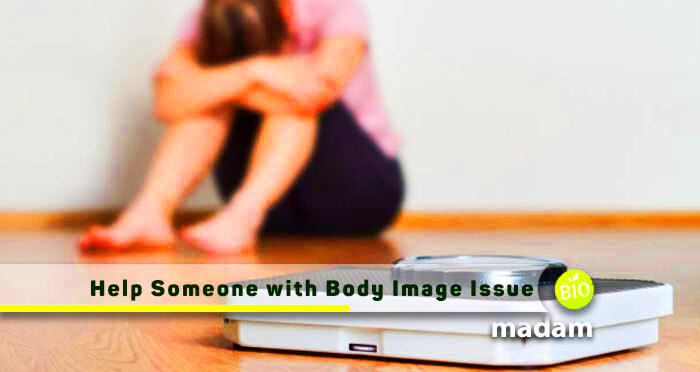
 admin
admin








